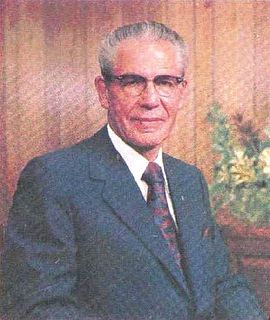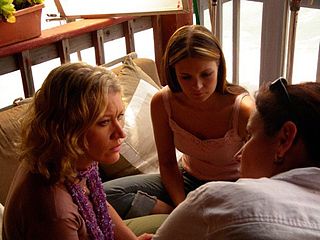A Quote by Ezra Taft Benson
Too often the pressure for popularity, on children and teens, places an economic burden on the income of the father, so mother feels she must go to work to satisfy her children's needs. That decision can be most shortsighted.
Related Quotes
The lower the family income, the higher the probability that the mother must work. Today, 1 out of 5 of these working mothers has children under 3. Two out of 5 have children of school age. Among the remainder, about 50 percent have husbands who earn less than $5,000 a year-many of them much less. I believe they bear the heaviest burden of any group in our Nation. Where the mother is the sole support of the family, she often must face the hard choice of either accepting public assistance or taking a position at a pay rate which averages less than two-thirds of the pay rate for men.
And in the same way, FDR's not much of a father. Although the children in all their memoirs really talk about what a fun-loving guy Dad was, and how brooding and unhappy Mom was. The children sort of blame it all on the mother. Well, this is kind of standard and typical, and aggrieved Eleanor Roosevelt that she was not a happier mother. She wanted to be a happier mother. And I must say, she was a happier grandmother.
I know also another man who married a widow with several children; and when one of the girls had grown into her teens he insisted on marrying her also, having first by some means won her affections. The mother, however, was much opposed to this marriage, and finally gave up her husband entirely to her daughter; and to this very day the daughter bears children to her stepfather, living as wife in the same house with her mother!
A mother experiences more than one death, even though she herself will only die once. She fears for her husband; she fears for her children; again she fears for the women and children who belong to her children. ... For each of these-whether for loss of possessions, bodily illness, or undesired misfortune-she mourns and grieves no less than those who suffer.
If the bringing of children into the world is today an economic burden, it is because the social system is inadequate; and not because God’s law is wrong. Therefore the State should remove the causes of that burden. The human must not be limited and controlled to fit the economic, but the economic must be expanded to fit the human.
Another very interesting chapter is the education of children: the victims of problems of the family are the children. The children. Even of problems that neither husband nor wife have a say in. For example, the needs of a job. When the dad doesn't have free time to speak to his children, when the mother doesn't have time to speak with her children.
In my earliest of years, my mother was a huge force in my life. She was for all intents and purposes, a single parent. My father had abandoned us. He was an alcoholic and a physical abuser. My mother lived through that tyranny and made her living as a domestic worker. She was uneducated but she brought high principles and decent values into our existence, and she set lofty goals for herself and for her children. We were forever inspired by her strength and by her resistance to racism and to fascism.










































